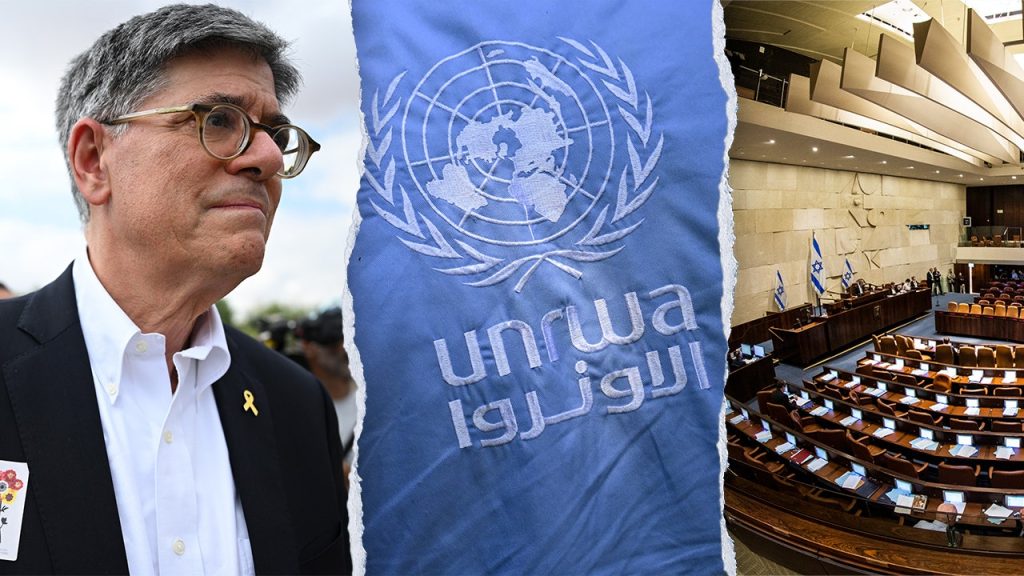As the Israeli Knesset considers legislation to cut ties with UNRWA, pressure from the U.S. is mounting against the bill, with requests from U.S. Ambassador Jacob Lew to halt the proposed laws. Yulia Malinovsky, a Knesset member involved in the legislation, argues that UNRWA is a terrorist organization closely tied to Hamas, perpetuating the conflict and supporting its workers. U.S. Secretary of State Antony Blinken and Secretary of Defense Lloyd Austin have warned Israel that passing the law could have devastating effects on humanitarian efforts in Gaza and potentially violate U.S. laws if enacted.
Despite opposition from various countries and the United Nations, Israeli leaders like Yair Lapid and Avigdor Lieberman are firm in their support for the legislation. Lapid points to UNRWA’s involvement in terrorist activities and cases like the October 7 massacre as reasons for its closure. Lieberman also emphasizes the critical importance of the law for Israel’s security. The Shin Bet, Israel’s security agency, has classified UNRWA as a threat to national security, and many believe that dismantling UNRWA is necessary for a better reality in the Middle East.
The issue of UNRWA’s presence in Israel has garnered strong support from the parents of Yonatan Samerano, a victim of a kidnapping by a UNRWA employee. They urge government members to urgently pass the legislation, warning that their surrender to diplomatic pressure would make them complicit in tragedies like the October 7 massacre. While participants from various political parties support the legislation, some in the Israeli government have expressed reluctance, citing concerns about the bill being considered “extreme” and suggesting it be delayed until after the upcoming U.S. elections.
Opinions on the legislation remain divided within Israeli leadership, with pressure from the U.S. intensifying the debate. The Biden administration has raised concerns that passing the law against UNRWA could hinder humanitarian services for Palestinians in Jerusalem, potentially leading to the violation of U.S. laws. Some argue that UNRWA provides vital services in Gaza, the West Bank, Lebanon, and Jordan and that Israel would be left responsible for filling the gaps if UNRWA were to be disconnected. However, supporters of the legislation continue to stress the organization’s ties to terrorism and the need to prioritize Israel’s security.
Israeli legislators and diplomats have continued to question their country’s relationship with UNRWA, with calls for the organization’s complete dismantling from Gaza and other areas of activity. Jonathan Conricus, a senior fellow at the Foundation for Defense of Democracies, believes that Israeli legislation to sever ties with UNRWA is a necessary step. Opposition leader Yair Lapid and Yisrael Beiteinu party head Avigdor Lieberman have remained steadfast in their support for the legislation, emphasizing its importance for national security.
Prime Minister Benjamin Netanyahu’s office has confirmed that the proposed law to end relations with UNRWA has not been withdrawn and is currently under discussion in the Knesset. Despite concerns about the legislation from some members of the Israeli government, supporters argue that the closure of UNRWA is essential for ensuring peace and security in the region. The ongoing debate highlights the complex geopolitical dynamics surrounding UNRWA, with stakeholders grappling with the organization’s alleged links to terrorism and the broader implications for humanitarian assistance and stability in the Middle East.


